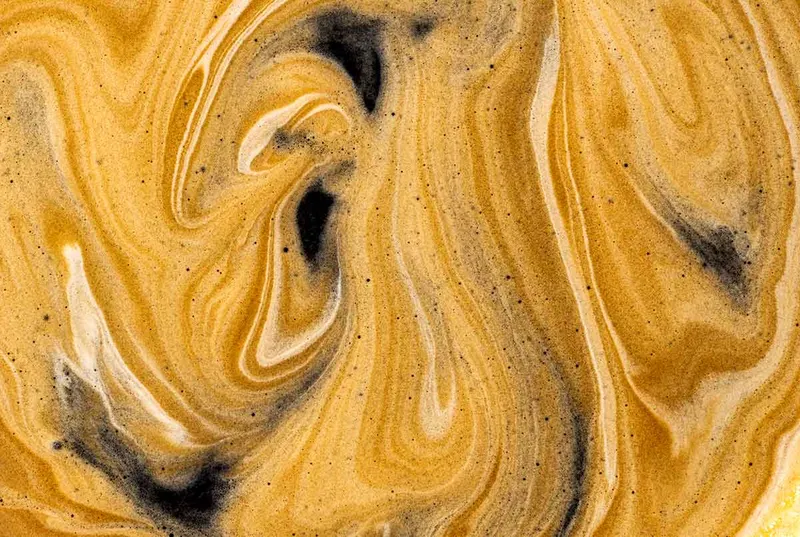How do you make the perfect cup of coffee, you ask? Sadly, there isn’t an easy answer. A quick scroll through social media or niche coffee forums will leave your head reeling with machines costing thousands and unique tips to get your coffee tasting its best.
However, as such a subjective drink, there really is no perfect coffee. Instead, there is simply a really good cup that fits your tastes. And to get to that point, there are just a few things you need. After that, costs fly up while improvements stay somewhat marginal.
So, the better question – how do you make a killer cup of coffee without breaking the bank? We spoke to Chris Hendon, a professor of computational materials chemistry at the University of Oregon, and an all-round leading coffee science expert to find out.
1. Get the right beans
A good coffee starts with the beans – there is absolutely no surprise there. While pre-ground coffee bought from the supermarket is convenient, it isn’t going to provide the best result when it comes to taste.
“Coffee is a natural, seasonal product. Once it is roasted, it starts to de-gas and lose organic molecules that give rise to aroma and flavour. The fresher the coffee, and the nearer to the roast and harvest date, the better the flavour profile is going to be,” says Hendon.
“You want to seek out coffee that has been roasted between 1 to 4 weeks before you buy it. This can mean shopping around a bit, but it makes a huge difference in the end result”.
Of course, this is going to be more time-consuming and expensive. If you aren’t able to track down fresh quality beans, it is still best to try and avoid pre-ground coffee for the best taste.

2. Perfect your grind
Okay, so we said you don’t need to invest in all of that expensive coffee gear. But if you do put your money towards one gadget, make it a grinder. This will make the biggest difference to your cup of joe, according to Hendon.
“Generally, the price scales linearly with the ability to grind better-sized coffee particles. There are blade grinders that, while cheaper, don’t tend to do as good a job,” says Hendon. He explains this is because they don’t let the particles out when they’re sufficiently small, so you end up with a variety of sized clumps of coffee. The little pieces will get wet before the big bits, leading to a more bitter taste.
Usually more expensive, a burr grinder crushes the coffee instead of splitting it with a blade. For those willing to put in the extra step, Hendon and his team have recently performed research into the concept of 'spritzing your beans' – which basically means adding a small bit of liquid to your grind. This reduces its static electricity, which will bring more flavour.
3. Change up your water
Sure, ground coffee is a key ingredient in the immensely popular drink but there is a second ingredient we don’t put much thought into. The water being used makes a huge difference to the outcome of a cup of coffee, and it all comes down to chemistry.
“In the UK, there is a big problem with the water. Hard water contains high mineral content, calcium and bi-carbonate, when these combine, they form limescale. The limescale combination does a weird thing to coffee,” says Hendon.
“The calcium helps facilitate flavour extraction from the coffee, but the bicarbonate completely mutes all the acids and turns them off. Coffee is naturally acidic in taste so this is going to massively take away from the taste.”
Hard water is extremely common, not just in the UK but around the world. This can often be why, despite controlling for all other factors, coffee at home just can’t quite match up to the ones you get from a café.
Hendon recommends going out and buying a bottle of soft or distilled water and trying this with your home-brewed coffee. If it makes a noticeable difference, it is likely that hard water is limiting the taste of your morning java.
4. Control the temperature, timing and mass
You can invest in a good grinder and coffee, and make sure you’re using soft water to brew your coffee, but there are actually four other key factors that affect your coffee, and luckily, they don’t cost anything extra.
- Brew time
- Water temperature
- Water mass
- Coffee mass
These are four variables that can change the taste and strength of your coffee considerably.
“Those are the four big factors that affect your coffee at the end stage. There are a couple of nuances here, like how brew time is dependent on your grind. Grind finer coffee, go slower on the brewing time,” says Hendon.
“If you go for a higher temperature, it will favour a lot of the extraction of tastes in coffee. And then with the mass of coffee and water, you’re controlling how strong your coffee is. Lots of coffee and little water is going to be strong, and the opposite is going to be diluted.”
5. Get experimental
At the end of the day, coffee is subjective. While science can tell us what technically makes a great coffee, it doesn’t allow for personal tastes. Experimenting with the brewing method can help you to discover a coffee you love.
More water, less coffee, hotter temperatures, longer brewing times, different beans, new tools, tricks like wetting the beans before grinding, or storing your coffee in the freezer, these are all ways to change the taste and quality of coffee, have fun with it!
Read more:
- Regularly drinking coffee may help to protect your heart
- Why does coffee make me need a poo?
- A forgotten coffee species could future-proof your morning espresso
About our expert, Christopher Hendon
Christopher is a professor of computational materials chemistry at the University of Oregon, and an author, writing multiple books and articles on the topic of how to brew the perfect coffee.
